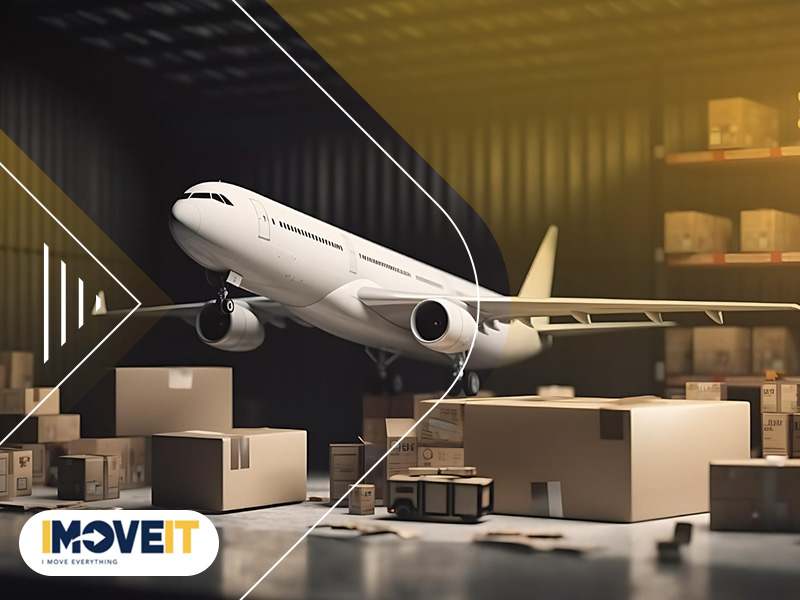
What Is Air Parcel Shipping? And Why Does It Matter?
Speed and reliability have become a part of our lifestyle in this era, and logically, they have become part of the logistics industry’s operations. Air shipping is an important pillar in this industry, but what is air parcel shipping? And why does it hold such immense importance? This article aims to unravel the intricacies of air shipping, shedding light on its crucial role in facilitating global trade and expediting time-sensitive deliveries.
What Is Air Parcel Shipping?
Air parcel shipping refers to the transportation of packages or parcels via air freight services. It involves the movement of goods from one location to another using aircraft as the primary mode of transportation.
When speed is a priority, air parcel shipping is commonly used for sending packages internationally or over long distances.
Advantages of Air Parcel Shipping
Air Parcel Shipping offers several advantages over other shipping methods, including:
Speed
Air shipping is generally faster compared to other modes of transportation. It allows parcels to reach their destination quickly, particularly useful for time-sensitive shipments.
Global Reach
Air parcel shipping enables global connectivity, transporting packages to almost any location worldwide. It connects countries and continents, making it essential to international trade.
Reliability
Air freight services often have well-established networks and schedules, ensuring reliable and predictable delivery times. Airlines and logistics companies carefully track packages to minimize the risk of loss or damage.
Security
Air cargo is subject to stringent security measures, minimizing the chances of theft or unauthorized access. Airports and cargo handling facilities have robust security systems to protect the goods being transported.
Tracking and Traceability
Most air parcel shipping services provide tracking and traceability features, allowing shippers and recipients to monitor the package’s progress in real-time. This helps in ensuring transparency and provides peace of mind to both parties.
Limitations of Air Parcel Shipping
Cost
Air shipping is more expensive than other shipping methods like sea freight or ground transportation. The higher costs are primarily due to the speed and convenience of air transport.
Weight and Size Restrictions
Airlines impose weight and size restrictions on air cargo. Larger or heavier parcels may incur additional fees or may not be eligible for air shipment. This limitation makes air shipping less suitable for transporting oversized or bulky items.
Limited Accessibility
Airports and cargo facilities are unavailable in all locations, especially in remote or rural areas. This limitation can cause challenges in reaching specific destinations directly by air. Additional ground transportation or alternative shipping methods may be required in such cases.
Customs and Regulatory Requirements
International air parcel shipping involves complying with different countries’ customs and regulatory requirements. This includes documentation, customs duties, taxes, and restrictions on certain goods. Navigating these requirements can be complex and time-consuming.
Weather and Flight Delays
Adverse weather conditions, such as storms or heavy fog, can disrupt flight schedules and cause delays in air parcel shipping. While airlines and logistics companies take precautions to minimize these disruptions, they can still occur and impact delivery timelines.
How Does Air Parcel Shipping Work?
After knowing the answer to the question “What is air parcel shipping?” how does it work? Air parcel shipping involves several key steps, including:
- Booking: Shippers arrange to transport their parcels with an air freight forwarder or carrier.
- Processing: Parcels undergo packaging, labeling, and documentation processes to ensure compliance with air transport regulations.
- Transport: The parcels are loaded onto aircraft and transported to their destination airports.
- Customs Clearance: Upon arrival, parcels go through customs clearance procedures before being released for delivery.
- Last-Mile Delivery: Local carriers or courier services handle the final leg of the delivery process, transporting parcels from the airport to the recipient’s address.
Choosing The Logistics Company
After identifying the answer to “What Is Air Parcel Shipping?”. When selecting a logistics company, consider the efficiency and reliability of air freight options. With Imoveit, users gain access to a comprehensive platform offering contacts for logistics companies, including those who provide air shipping. Explore Imoveit platform now to find the perfect logistics solution for your needs.




